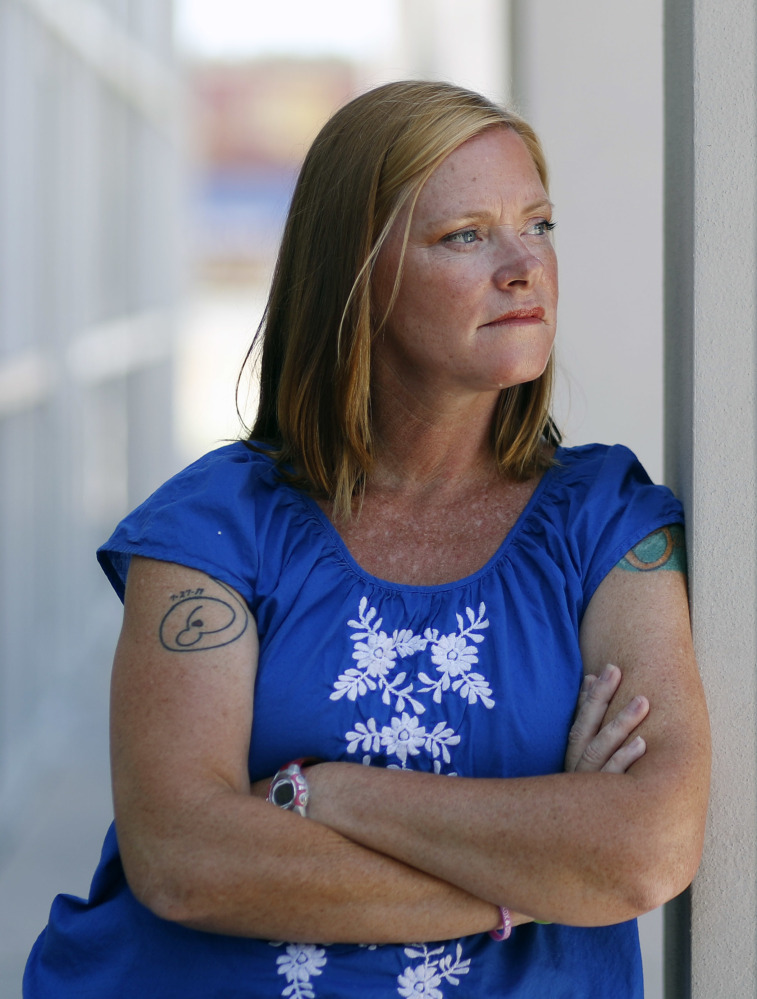Americans increasingly favor tougher gun laws by margins that have grown wider after a steady drumbeat of shootings in recent months, but they also are pessimistic that change will happen anytime soon, according to a new Associated Press-GfK poll.
Nearly two-thirds of respondents expressed support for stricter laws, with majorities favoring nationwide bans on the sale of semi-automatic assault weapons such as the AR-15 and on the sale of high-capacity magazines holding 10 or more bullets.
The percentage of Americans who want such laws is the highest since the AP-GfK poll started asking the question in 2013, a survey taken about 10 months after the Sandy Hook Elementary School shooting in Newtown, Connecticut, that killed 20 children and six educators.
High-profile shootings also appear to have taken a toll on Americans’ sense of safety. Strong majorities of those polled expressed some degree of concern that they or a relative will be a victim of gun violence or a mass shooting.
“If you live in the United States in these days right now, you have to be concerned,” said Milonne Ambroise, a 63-year-old administrative assistant from Decatur, Georgia. “You could be on the street somewhere. You could be at a shopping mall thinking there will be a mass shooting and you will be in the middle of it. You can’t not think about it.”
Ambroise, a native of Haiti who moved to the U.S. nearly 50 years ago, said she is now much more alert and on guard whenever she is in public.
“I’m looking for exits. This isn’t something I did before,” she said. “What if I have to run? Where’s the exit? Where would I go?”
The level of concern about being victimized is not uniform, however. Nonwhites are significantly more likely to be very or extremely concerned.
Alonzo Lassiter, 66, of suburban St. Louis, worries that his autistic 17-year-old son could be the victim of gun violence, either by a robber or the police.
“If somebody told him to get on the ground and put his hands up – or told him to give up his headphones – he wouldn’t readily identify those instructions,” said Lassiter, who is black. “He may be an easy target.”
He said straw purchasers who buy and then resell guns to ineligible felons and teenagers have flooded some urban neighborhoods with firearms and need to be stopped.
The poll was conducted July 7 to July 11, shortly after a string of high-profile shootings. That included the Orlando nightclub massacre that left 50 dead, including the gunman, and 53 others wounded, and the fatal police shootings of black men in Minnesota and Louisiana. Most interviews took place after the sniper attack that killed five officers in Dallas.
A majority of respondents expressed a desire for a national approach to gun laws, rather than a patchwork of state laws or local regulations, even though Congress has thus far failed to act on many of the initiatives the poll showed Americans support. Yet less than half of respondents said they believe gun laws will indeed get tougher in the coming year.
By a 55 percent to 43 percent margin, respondents said laws that limit gun ownership do not infringe on the constitutional right to bear arms. But the responses also revealed a partisan divide: 87 percent of Democrats support stricter gun laws compared with 41 percent of Republicans.
Gender and geography are other dividing lines, the poll found. Women and those who live in cities and suburbs are more likely to support gun restrictions than men and those who live in rural areas.
Americans find common ground on other issues. Strong majorities of Democrats and Republicans said they support requiring background checks for people buying firearms at gun shows and through other private sales. They also back a ban on gun sales to people on the federal terrorism watch list even if they have not been convicted of a crime.
“Why should it only be the dealers that have to do the background checks? At gun shows, individual sellers should be required to do the background checks so they don’t end up selling them to the criminal element,” said John Wallace, a disabled Vietnam veteran and former gun dealer who lives in Limestone, Maine, and owns several guns.
Despite the support for tighter gun laws, majorities oppose banning handguns, imposing an Australia-style gun buyback program or making gun manufacturers or sellers liable if guns are later used in a crime.
Send questions/comments to the editors.



Success. Please wait for the page to reload. If the page does not reload within 5 seconds, please refresh the page.
Enter your email and password to access comments.
Hi, to comment on stories you must . This profile is in addition to your subscription and website login.
Already have a commenting profile? .
Invalid username/password.
Please check your email to confirm and complete your registration.
Only subscribers are eligible to post comments. Please subscribe or login first for digital access. Here’s why.
Use the form below to reset your password. When you've submitted your account email, we will send an email with a reset code.